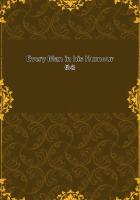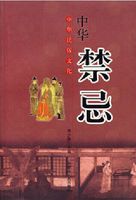is by no means framed to suit the exceptional case of a contention between lord and tenant; its object is also to protect the tenants against each other in a way which is out of the question where ordinary villainage is concerned. The two reasons converge, as it were, in the fact that the 'little writ of right'
is suable in all ancient demesne manors without exception, that it applies quite as much to those which remain in the crown as to those which have been alienated from it.(30*) And this leads us to a very important deduction. If the affinity of privileged villainage and freehold is connected with the 'little writ of right' as such, and not merely with a particular application of it, if the little writ of right is framed for all the manors of ancient demesne alike, the affinity of privileged villainage and freehold is to be traced to the general condition of the king's manors in ancient demesne.(31*)Although the tenants in ancient demesne are admitted to use the 'little writ of right' only, their court made it go a long way; and in fact, all or almost all the real actions of the common law had their parallel in its jurisdiction. The demandant, when appearing in court, made a protestation to sue in the nature of a writ of mort d'ancestor or of dower(32*) or the like, and the procedure varied accordingly, sometimes following very closely the lines of the procedure in the high courts, and sometimes exhibiting tenacious local usage or archaic arrangements.(33*)Actions as to personal estate could be pleaded without writ, and as for the crown pleas they were reserved to the high courts.(34*) But even in actions regarding the soil a removal to these latter was not excluded.(35*) Evocation to a higher court followed naturally if the manorial court refused justice and such removal made the land frank fee.(36*) The proceedings in ancient demesne could be challenged, and thereupon a writ of false judgment brought the case under the cognizance of the courts of common law. If on examination an error was found, the sentence of the lower tribunal was quashed and the case had to proceed in the higher.(37*) instances of examination and revision are frequent in our records.(38*) The examination of the proceedings by the justices was by no means an easy matter, because they were constantly confronted by appeals to the custom of the manor and counter appeals to the principles of the common law of England.
It was very difficult to adjust these conflicting elements with nicety. As to the point of fact, whether an alleged custom was really in usage or not, the justices had a good standing ground for decision. They asked, as a rule, whether precedents could be adduced and proved as to the usage;(39*) they allowed a great latitude for the peculiarities of customary law; but the difficulty was that a line had to be drawn somewhere.(40*) This procedure of revision on the whole is quite as important a manifestation of the freehold qualities of privileged villainage as pleading by writ. Men holding in pure villainage also had a manorial court to go to and to plead in, but its judicial organisation proceeded entirely from the will and power of the lord, and it ended where his will and power ended; there was no higher court and no revision for such men. The writ of false judgment in respect of tenements in ancient demesne shows conclusively that the peculiar procedure provided for the privileged villains was only an instance and a variation of the general law of the land, maintaining actionable rights of free persons. And be it again noted, that there was no sort of difference as to revision between those manors which were in the actual possession of the crown and those which were out of it.(41*) Revision and reversal were provided not as a complement to the legal protection of the tenant against the lord, but as a consequence of that independent position of the tenant as a person who has rights against all men which is manifested in the parvum breve.(42*) It is not without interest to notice in this connexion that the parvum breve is sometimes introduced in the law books, not as a restriction put upon the tenant, nor as the outcome of villainage, but as a boon which provides the tenant with a plain form of procedure close at hand instead of the costly and intricate process before the justices.(43*)If protection against the lord had been the only object of the procedure in cases of ancient demesne, one does not see why there should be a 'little writ' at all, as there was a remedy against the lord's encroachments in the writ of 'Monstraverunt,'(45*) pleaded before the king's justices. As it is, the case of disseisin by the lord, to whom the manor had come from the crown, was treated simply as an instance of disseisin, and brought under the operation of the writ of right, while the 'Monstraverunt' was restricted to exaction of increased services and change of customs.(46*) The latter writ was a very peculiar one, in fact quite unlike any other writ. The common-law rule that each tenant in severalty has to plead for himself did not apply to it; all join for saving of charges, albeit they be several tenants.(46*) What is more, one tenant could sue for the rest and his recovery profited them all; on the other hand, if many had joined in the writ and some died or withdrew, the writ did not abate for this reason, and even if but one remained able and willing to sue he could proceed with the writ.(47*) These exceptional features were evidently meant to facilitate the action of humble people against a powerful magnate.(48*) But it seems to me that the deviation from the rules governing writs at common law is to be explained not only by the general aim of the writ, but also by its origin.















